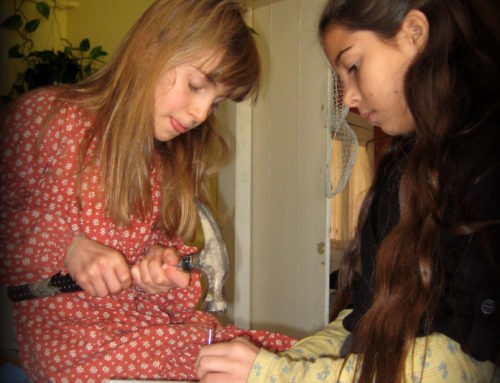Compliments that Connect
How able are you to accept a compliment?
We all know we “SHOULD” accept compliments when we receive them, but here’s the funny thing about compliments- they often come in the form of judgment:
“You’re so pretty”
“You’re so smart”
“You’re such a calm person”
“You’re so kind and considerate”
Have you ever noticed that you might feel slightly uneasy with these compliments even though you “should” be able to take a compliment?
The thing with these types of compliments which are really evaluations and judgments, is that they are static, putting a label on who you are in a fixed sort of way
So what happens then if you have a moment of un-calm? If in a moment you don’t live up to being as smart as you have been judged as being?
What happens if you don’t at all feel or perceive yourself the way the other person is judging you to be?
What happens inside you when you receive this form of “compliment”?
And what happens to the connection between you and the other person?
What I notice when I receive this type of compliment is that I experience some form of separation from the speaker rather than a greater sense of connection.
These types of compliments often give me an uneasy sense of disconnection and also some amount of doubt that I’m being seen for the fullness of who I am. They are often communicated in such a way that implies that the speaker does not have or is deficient in what they are appreciating in the other creating a sort of comparison or hierarchy.
They also create some sense of pressure. The pressure that I must keep living up to the evaluation the other has made of me in order to still receive their love and appreciation.
(if you want to take a deeper look at this and the particular cost of praise on children read “How Not To Talk to Your Kids)
Given that, would it not make perfect sense that you would experience discomfort with receiving this type of compliment? And yet, receiving appreciation from others is a gift to the one offering their appreciation as well as a gift to you if you are truly able to receive it.
 So how do we give and receive “compliments” or appreciation in ways that are more likely to create connection and could make them easier to receive?
So how do we give and receive “compliments” or appreciation in ways that are more likely to create connection and could make them easier to receive?
First, let’s get out of the language of evaluation, out of telling people what or who they are. We are all changeable, capable of all forms of human expression and are most healthy when we are able to access a full spectrum of feelings and experience. If we get the idea that we’re a calm person and must be a calm person to be liked or appreciated, we may have very much trouble expressing ourselves in other ways. This could be quite costly to us in the long-run.
Instead, let’s communicate how someone has touched, moved or impacted us in some way. This is fluid and dynamic rather than static, engaging with the flow of life rather than a fixed definition of who someone is. It also gives the person receiving the compliment useful information about what they actually did that was a contribution to us. It’s empowering, because if you know what you did to contribute to someone else’s positive experience, then you know how to do it again.
Instead of you’re so kind and considerate… “I was really touched by what you said today, it really gave me a sense of how deeply you care.
Instead of “ you’re so pretty” I love your smile and the twinkle in your eyes, they really light me up”
Instead of you’re so smart “I’m really impressed with how you solved that problem, it gave me some inspiration about how to solve problems in the future that I never would have thought of on my own”
Instead of “you’re such a calm person … “When I see you pause before you speak or respond, I feel relaxed and at ease around you.”
Or whatever translation is true for you that reflects what the person actually did and how you felt or what needs were met by this rather than labeling the person as being a particular way.
How does it feel to read each of these statements? Which creates more ease or connection and which is easier for you to receive? Which expands your heart more?
Here’s a little practice:
- Notice whenever you make a judgment of someone “you’re great” “You’re so nice” “You’re so friendly”… and see if you can observe what the person actually did in that situation or moment and the contribution it made to you.
- What did they actually do or say that you are appreciating?
- What feelings arise in you in relationship to what they did?
- How is it contributing to your life? What needs or values does it connect to?
Please share comments, thoughts, experiences and reflections below. If this provides inspiration, insight or food for thought, then share it with your friends so they can engage with these ideas too!
Get my FREE AUDIO, Embrace Yourself! Five Hot Tips and Tools to Stop Feeling Crappy, Make Peace with Your Life and Embrace Your True Essence PLUS regular insights, inspirations and guidance for transformation
And LIKE MY TRUE PLACE and CREATING A NEW PARADIGM FOR CHILDHOOD on FaceBook


I liked your piece on compliments because it gave specific ways to improve them, from the general to the specific and how the person contributes to your life.
I find the more specific, the compliment, the more the person can build on it. General comments like “you are a great Latin student” are only believable for a moment and easily denied. But “That was cool the way you figured out that ablative case.”
is detailed enough to reflect something specific the student did and will stimulate positive reflection on their abilities.
I greatly appreciate how you have described the discomfort I feel when receiving compliments – I didn’t realize that there is a message, perhaps lingering from childhood, that you must keep repeating the behavior that earned you the compliment in order to continue to be loved and appreciated (it’s the “loved and appreciated part that’s new for me).
I know I’ve never liked to be “put in a box” and now I have a better understanding of why this feels so uncomfortable.
I realize I must accept the number of times my little granddaughter will be told “good job!” before she’s grown, it’s such a pervasive expression that rolls off the tongue of adults around children these days (I’m sure I never heard it once while growing up!). She’ll have her grandparents to tell her how much fun we have clapping hands to music with her and hearing all the different rhythms she can make!
Sharon: I’m delighted to know that what I have written has contributed to greater insight and understanding for you. I’m guessing there’s a lot of people that feel uncomfortable with this form of speech without realizing why, so I’m glad I could bring some deeper clarity for you.
Your comment about “Good Job” immediately brings to mind a blog I’ve been connected to via Facebook “Good Job and other things you shouldn’t say or do” Here’s the link to the website:
http://www.goodjobandotherthings.com
Bob: Yes, descriptive rather than evaluative language can go much further to supporting another’s self confidence because it’s something they did or said, not what the other person perceives or thinks! I find that to be such a useful distinction, so thanks for bringing that forth.